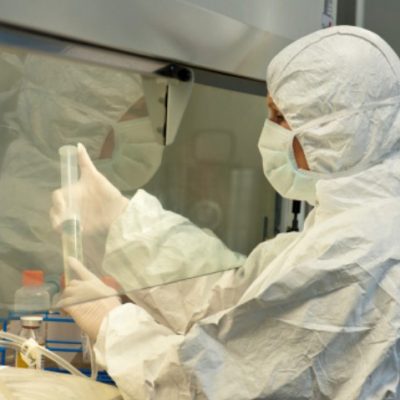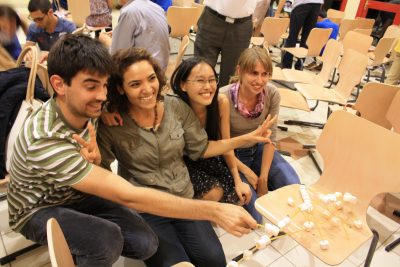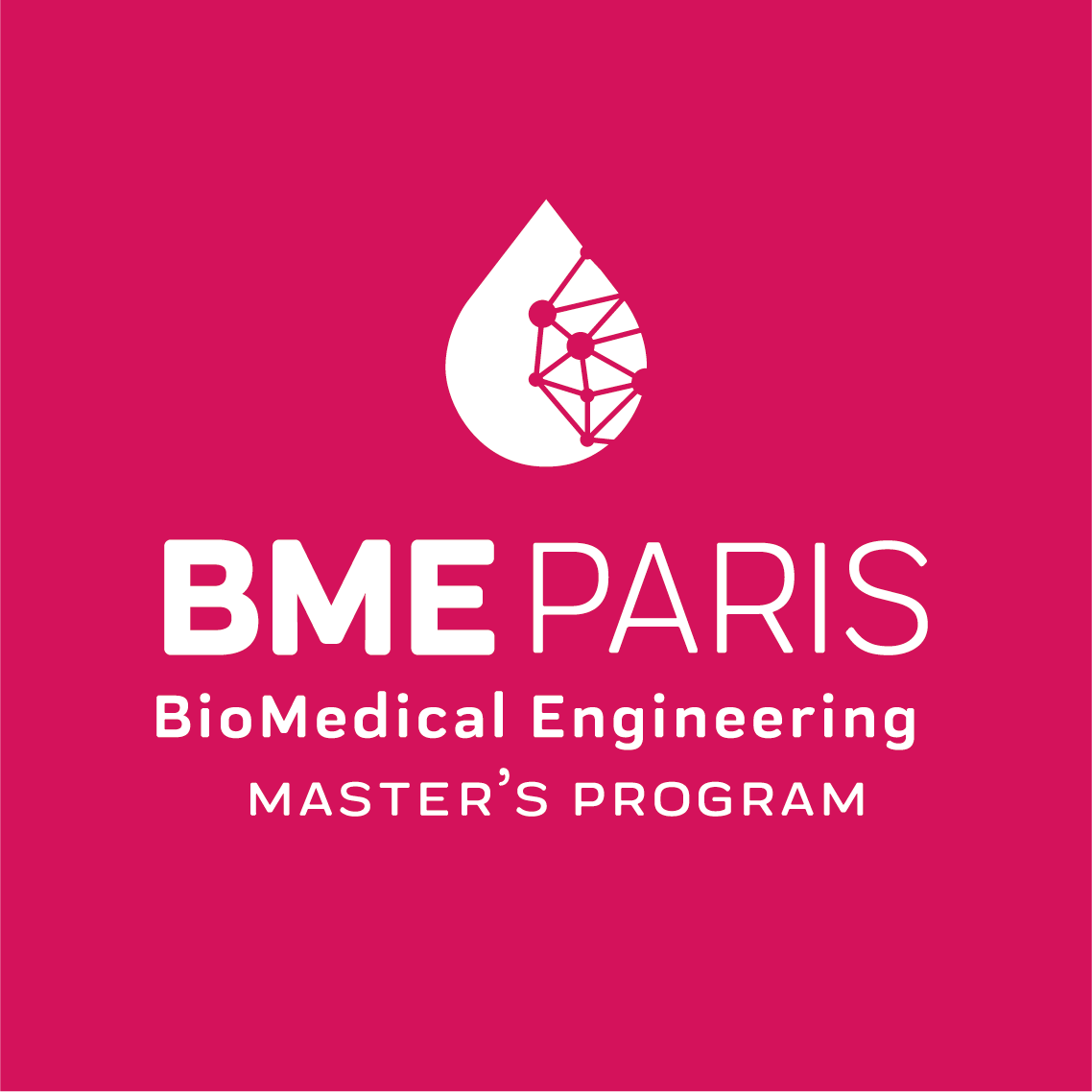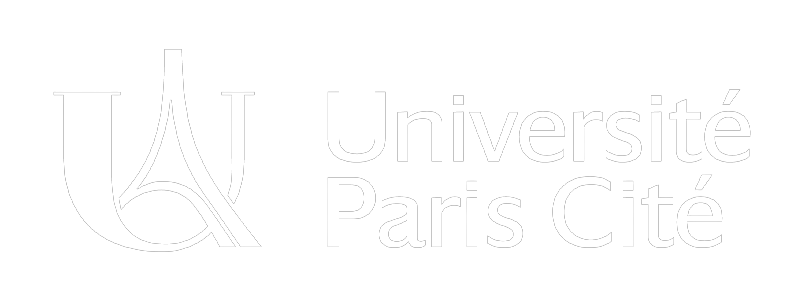Molecular & Cellular Biotherapies
Molecular & Cellular Biotherapies (MCB)
The MCB track concerns two major categories of biotherapeutics  applications: cell and gene therapy, and biopharmaceuticals. Cell and gene therapy differs from drug therapy in that it concerns the use of ‘custom or « à la carte » therapeutic agents created for a individual patients, a domain in which few manufacturers operate. Biopharmaceuticals are complex macromolecules created by biotechnology, and involve genetic manipulation of living organisms, which differ from conventional chemically synthesized small molecules.
applications: cell and gene therapy, and biopharmaceuticals. Cell and gene therapy differs from drug therapy in that it concerns the use of ‘custom or « à la carte » therapeutic agents created for a individual patients, a domain in which few manufacturers operate. Biopharmaceuticals are complex macromolecules created by biotechnology, and involve genetic manipulation of living organisms, which differ from conventional chemically synthesized small molecules.
The specific pharmacological and immunological features of biotherapy products, considered to constitute a new generation of drugs, are studied in conjunction with the characteristics of target populations, clinical follow-up, and biological monitoring.
The aim of this track is to train students of advanced scientific level in the field of biotherapy in order to prepare for careers in academia. These students may also find opportunities in industry at the national, European, and international level, particularly in biotechnology and medical research laboratories in teaching hospitals) , as well as in cell and gene therapy firms.
The MCB program is divided into several course units. The first one covers the background and fundamental biological concepts needed to understand the various biotherapeutic approaches. It also provides an introduction to biological considerations involved in the use of therapeutic tools. The second unit addresses each biological system individually. The remaining two units deal with the study of specific examples, industrial aspects, and regulatory issues involved in the use of various types of biotherapeutic tools, as well as to clinical applications.
Semester 3
Mandatory courses
Course Title: Open Your Mind Seminars
Description:
Key words:
Total number of hours: Number of ECTS: Semester
Mandatory course ☐ Optional course ☐
Prerequisites/skills needed:
Teaching methods and activities:
Location:
Course supervisor:
Course Title: Interdisciplinary week
Description:
Key words:
Total number of hours: Number of ECTS: Semester
Mandatory course ☐ Optional course ☐
Prerequisites/skills needed:
Teaching methods and activities:
Location:
Course supervisor:
Course Title: Transversal skills development
Description:
Key words:
Total number of hours: Number of ECTS: Semester
Mandatory course ☐ Optional course ☐
Prerequisites/skills needed:
Teaching methods and activities:
Location:
Course supervisor:
Course Title: Gene Transfer Strategies
Description: The aim of this module is to create a pedestal of knowledge on gene modification strategies to prepare students for the understanding of therapeutics developed in biotherapies. This program will address (i) the different gene transfer strategies based on viral vectors such as retroviruses or lentiviruses or non-integrative DNA viruses such as adenoviruses or adenovirus-associated viruses (AAV) as well as non-viral strategies including plasmid DNA systems coupled or not to electro-transfer; (ii) methods of Clinical grade viral vector batches production for mono-genic hereditary diseases treatment; (iii) the different tools used for genome editing to modify or repair gene mutations such as Zinc Finger Nucleases, Meganucleases, TALENs or the CRISPR /Cas 9 system and (iv) the risks related to the use of these different vectors and tools as well as the methods for analyzing these risks will be presented.
Key words: Gene transfer; Genome editing tools; large scale vector production; clinical risks
Total number of hours: 32 Number of ECTS: 4 Semester 3
Mandatory course ☒ Optional course ☐
Prerequisites/skills needed: Master 1 degree or equivalent in biological sciences
Teaching methods and activities: lectures (CM), practical sessions (TD)
Location: université paris cité, Faculté de Pharmacie
Course supervisor: Salima HACEIN-BEY-ABINA (Professor)
Course Title: Basic Immunology in Biotherapies
Description: This module provides a deeper understanding of basic immunology needed to understand the strategies developed in biotherapies. The program will particularly focus on (i) the immune response establishment and the effectors of this response; (ii) the use of immunocompetent cells as therapeutic tools; (iii) basic immunological aspects of transplantation, such as self-tolerance and rejection reactions; (iv) strategies for the development of monoclonal antibodies used in therapeutics and (v) vaccine strategies and their anti-tumor and anti-infection applications will be presented.
Key words: fundamental Immunology; Immunopathology; immunocompetent cells as therapeutic tools
Total number of hours: 32 Number of ECTS: 4 Semester 3
Mandatory course ☒ Optional course ☐
Prerequisites/skills needed: Master 1 degree or equivalent in biological sciences
Teaching methods and activities: lectures (CM), practical sessions (TD), other: Worshops
Location: Université Paris Cité, Faculté de Pharmacie
Course supervisor: Virginie DANGLES-MARIE (Associate Professor)
Course Title: Stem cells and disease
Description: The objective of this module will be to address the fundamental knowledge on stem cells needed to understand the strategies developed in cell therapy. Thus, this program will tackle (i) the description and characterization of the various human stem cells including: – embryonic stem cells – induced pluripotent stem cells – fetal, amniotic stem cells – and adult stem cells allowing renewal and/or homeostasis of healthy tissues; (ii) the different methods of in vitro production and techniques allowing their maintenance in long-term culture; (iii) notion of adult stem cell niche and the different methods for its in vitro modeling; (iv) murine embryonic stem cells and their potential to derive new murine strains; (v) the characterization of cancer stem cells at the origin of solid cancers and leukemias and (vi) stem cell differentiation protocols in a given tissue will also be studied with their limitations for obtaining future therapeutic applications. Finally, most of the protocols will be detailed and will serve as models for students to help them to design (during dedicated workshops) a project based on a stem cell- derived cell product for the treatment and the rebuilding (reconstitution) of an organ or a defective tissue.
Key words: Cell therapy; Cell lineage; Human and murine stem cells; Cellular models
Total number of hours: 24 Number of ECTS: 3 Semester 3
Mandatory course ☒ Optional course ☐
Prerequisites/skills needed: Master 1 degree or equivalent in biological sciences
Teaching methods and activities: lectures (CM), practical sessions (TD), other: Worshops
Location: Université Paris Cité, Faculté de Pharmacie
Course supervisor: Franck GRISCELLI (Professor)
Course Title: Gene Therapies: Clinical Applications – Part 1
Description: This module is divided in 2 parts and will address bio-therapeutic applications by considering all the steps leading to the clinical trial application. The program of this first part will develop (i) animal models used in the preclinical development steps. Some examples will be proposed to highlight the relevance of the choice of the best animal model adapted to the system studied for the validation of a therapeutic process. The limitations of these models will also be discussed. (ii) the regulatory and clinical aspects of biotherapies will be studied. The guidelines of the different regulatory agencies will be introduced and the main steps leading to clinical trial protocol implementation will be presented. (iii) the clinical applications will be presented according to the biological systems, the organs and their pathologies, we will start in this first part by monogenetic diseases of the lymphohematopoietic system treated by gene therapy.
Key words: Animal models; Regulatory guidelines applied to biotherapeutics; Clinical trials
Total number of hours: 32 Number of ECTS: 4 Semester 3
Mandatory course ☒ Optional course ☐
Prerequisites/skills needed: Master 1 degree or equivalent in biological sciences
Teaching methods and activities: lectures (CM), practical sessions (TD), other: European congress (European society of cell and gene therapy: ESCGT)
Location: université paris cité, Faculté de Pharmacie
Course supervisor: Salima HACEIN-BEY-ABINA (Professor)
Course Title: Gene Therapies: Clinical Applications – Part 2
Description: The second part of the module is mainly dedicated to gene therapy clinical applications with the study of (i) therapeutic applications in CNS and eye pathologies, (ii) gene therapy strategies in myopathies, (iii) gene therapy strategies in metabolic and lysosomal diseases, (iv) gene therapy strategies in pulmonary pathologies and (v) applications in dermatological pathologies. (vi) Some applications of gene therapy representing future prospects for development will be explored as models to the students who will (during workshops) develop projects adapted to the pathophysiology of the chosen disease and based on an approach that takes into account all stages of clinical trial development since the preclinical research phase to the clinical application through the translational research stage.
Key words: gene therapy clinical applications
Total number of hours: 24 Number of ECTS: 3 Semester 3
Mandatory course ☒ Optional course ☒
Prerequisites/skills needed: Master 1 degree or equivalent in biological sciences
Teaching methods and activities: lectures (CM), practical sessions (TD), other: European congress (European society of cell and gene therapy: ESCGT)
Location: Université Paris Cité, Faculté de Pharmacie
Course supervisor: Franck GRISCELLI (Professor)
Course Title: Cancer therapies/Immunotherpaies
Description: The objective of this module will be to present the two main anti-cancer strategies currently developed (i) the strategies based on the use of oncolytic viruses and (ii) the immunotherapy strategies for which we will distinguish: – adoptive immunotherapy based on the use of TILs, CAR-Tcells, TCRs, unconventional T cells and NK cells. Applications in haematological malignancies and solid tumors will be studied; – treatments based on the use of immunomodulatory antibodies: such as checkpoint inhibitors; bispecific antibodies etc; – importance of the tumor microenvironment in the mechanisms of tumor escape and the effectiveness of the response to cancer immunotherapies will also be studied.
Key words: cancer; immunotherapy; gene therapy
Total number of hours: 30 Number of ECTS: 3 Semester: 3
Mandatory course ☒ Optional course ☐
Prerequisites/skills needed: Master 1 degree or equivalent in biological sciences
Teaching methods and activities: lectures (CM), practical sessions (TD), other: Workshops; European congress (European society of cell and gene therapy: ESCGT)
Location: université paris cité, Faculté de Pharmacie
Course supervisor: Salima HACEIN-BEY-ABINA (Professor)
3 ECTS to be picked among
Course Title:
Description:
Key words:
Total number of hours: Number of ECTS: 3 Semester 3
Mandatory course ☐ Optional course ☒
No prerequisites/skills needed.
Teaching methods and activities:
Location:
Course supervisor:
Course Title: Principles in tissue engineering
Description: This lecture delivers an advanced knowledge of the concepts and issues associated with tissue engineering approaches for regenerative medicine. From a scientific and a technological point of view, this field of bioengineering requires the proper combination of biology, medicine, chemistry and physics. These questions are addressed by different experts from the stand points of engineering and health sciences. Through these classes and case studies, the students are also sensitized to the numerous other challenges that must be taken into account in tissue engineering (clinical practice, regulatory issues, process). The six classes are organized as follows: 1 – Introduction to tissue engineering; 2- Tissue engineering principles; 3- Materials and process to design tissue engineering products; 4- Nanotechnology and biophysics for tissue engineering; 5- Stem cells: potential, characterization and manipulation of stem cells for tissue engineering approaches; 6- Development and bench-to-bed transfer of a tissue engineering strategy. In parallel to the classes, team projects are conducted to study the feasibility of a tissue-engineering based therapy.
Key words: Tissue engineering, Regeneration, Scaffold design and processing, Cell seeding and manipulation
Total number of hours: 18 Number of ECTS: 3 Semester: 3
Mandatory course ☒ Optional course ☐
Prerequisites/skills needed:
Teaching methods and activities: lectures (CM), practical sessions (TD)
Location: Arts et Métiers
Course supervisor: Laurent CORTE (Professor)
One course of 3 ECTS in another Master (subject to Master chairs’ authorizations)
Semester 4
Mandatory courses
Course Title: Ethical and Industrial Aspects
Description:
Key words:
Total number of hours: Number of ECTS: Semester
Mandatory course ☐ Optional course ☐
Prerequisites/skills needed:
Teaching methods and activities:
Location:
Course supervisor:
Course Title: Research Internship
Description:
Key words:
Total number of hours: Number of ECTS: Semester
Mandatory course ☐ Optional course ☐
Prerequisites/skills needed:
Teaching methods and activities:
Location:
Course supervisor:
NB. No schedule or syllabus will be provided before the kick-off meeting. You must know that it is a full-time program though.
As far as the non mandatory courses are concerned, the students’ choices will have to be discussed with the track chairs and will be finalized during the interdisciplinary week, taking the student’s personal background and interests into consideration. It will then be validated in a co-signed contract of study.
The courses students will eventually attend will also depend on actual availability: some courses might not open because of an insufficient number of attendees, while others may have a limited capacity and not be able to offer a seat to all.
As indicated, a course may be offered to BME Paris students outside the track which supports it. In such cases, priority will be given to students enrolled in the supporting track.
Students enrolled in other Arts et Métiers, Université Paris Cité or Université PSL programs may also attend a BME Paris course, provided that:
- their respective program chairs support their application
- the course is not already full
- the relevant BME Paris chairs accept their applications which must include a CV and a motivation letter






